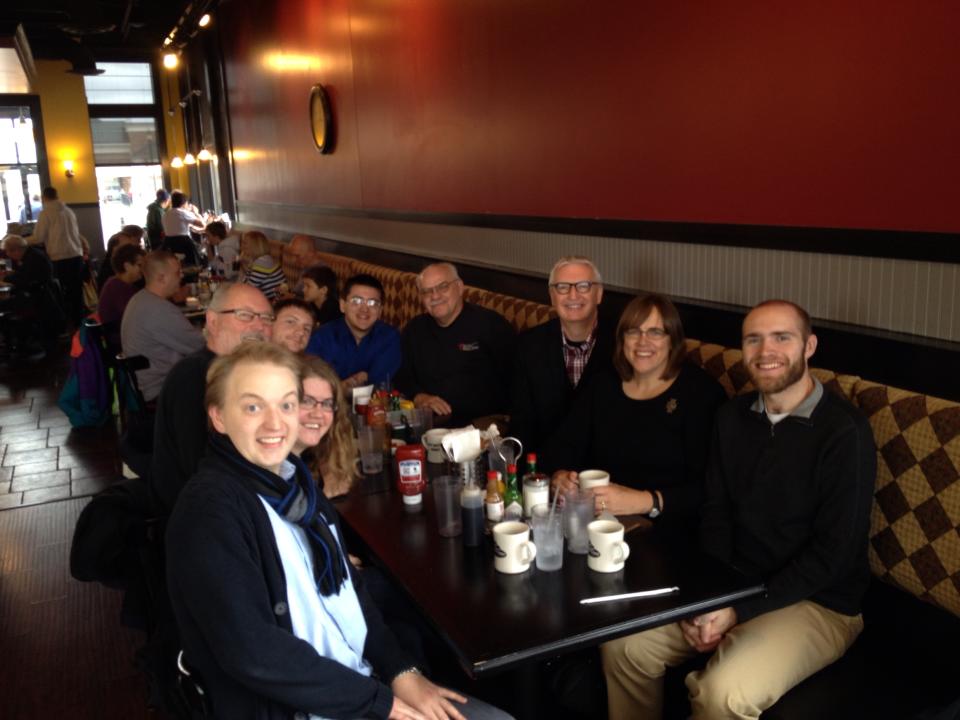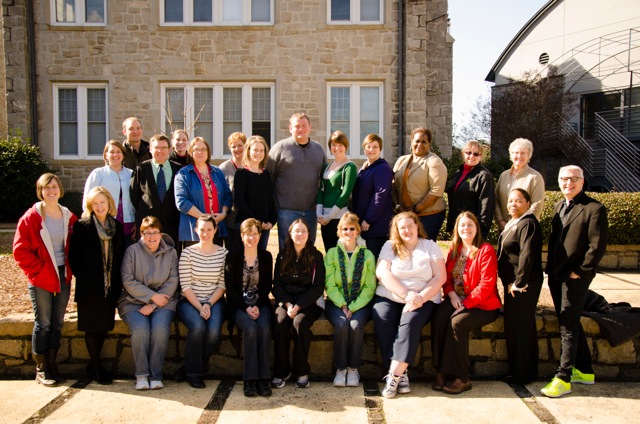'From the very beginning, we find the early Christians gathering together to share with each other the bewildering experiences that they have had with the risen Christ. They found that resurrection was not a fact to be believed, but an experience to be shared'.
(Walter Wink, Resonating with God's Song). 'Christian community is the place where we keep the flame of hope alive among us. That is how we dare to say that God is a God of love when we see death and destruction and agony around us. We say it together. We affirm it in each other'.
(Henri Nouwen, Finding my way home).
Acts 2 describes a community engaged in active economic sharing that goes far beyond charity: '
All who believed were together and had all things in common; they would sell their possessions and goods and distribute the proceeds to all, as any had need' (Acts 2:44-45). They shared in the breaking of the bread, where they recognized afresh the risen Christ present with them. They practiced generosity and hospitality. They practiced service to the 'least of these', and economic justice and non-violence. The community gathered around study, fellowship, worship and agape love. It is evident that God's Holy Spirit had empowered this early Christian community to live a collective life that reflected the model of servant ministry of Jesus.
And this description of a utopian vision of community lasts for five verses - and is not mentioned again as such in the biblical narrative! But in time, it has become idealized, much like Mothers Day* has become. It doesn't tell the whole story.
'Interpreters since the Reformation have proposed that the Acts description of the early church community offered a symbolically idealized portrait of communal life, that these verses describe practices that were necessarily short-lived and limited in scope'.
(Rita Halteman Finger, Of Widows and Meals: Communal Meals in the book of Acts). Certainly, the early church community had its strengths as well as its fractures and conflict (the latter permeates the Epistles). And the story in Acts 5 (Ananias and Sapphira) provides the sobering reality of fraud and dishonesty and opportunism that still emerges from time to time in the global church community. The
Bishop of Bling comes to mind!
And looking beyond the immediacy of the early church community to the wider context, we see the way this fledgling sect of Judaism adapted quickly to the social and political norms in which it found itself. Women's leadership was marginalized, despite women being amongst the benefactors for the early church. Slaves were told to accept the authority of their masters, even when they are harsh, and to endure suffering. The inclusion and advocacy for the disadvantaged had limits, especially as the church moved from the periphery as a marginal sect of Judaism to being appropriated as the state religion by Constantine. If conforming to the Roman Empire was costly in terms of what happened with the leadership of women, one can imagine the costliness to the integrity of the Christian faith and its traditions and practices when it was appropriated as the religion of the empire.
The story told in Acts begins in Jerusalem and ends in Rome, where according to Eusebius it built structures and hierarchies until it became something that fitted in nicely with the Roman Empire. Does this say something about the way the Christian Church accommodates societal structures and expectations?
It invites me to wonder about the way the Gospel is constantly being aligned with and subsumed into the prevailing social and political and economic realities of our time, rather than offering a challenge to assumptions and values that are embedded in practices and behaviours that denigrate or damage people. How might the Gospel enable the church to hold a mirror up to societal values and then reveal an alternate way - the way of Jesus. Even when it means losing power and privilege, and even financial support (government taxes and grants given to the church). Just maybe, the church can be most effective when it is on the margins, rather than in the centre with its accompanying power and privilege that can effectively compromise the integrity of the Gospel?
God is re-revealing to us the radical message of Jesus - a message of transformation through service, sacrifice and selfless love for our neighbours, enemies and ourselves. A message of humility and simplicity as the way of abundance and eternal life. Christians have never meant to be the ones in power. In fact, history shows us that anytime Christianity is given a position of power and influence, it quickly departs from the Gospel of Jesus. Christianity is the religion that proclaims a God who humbled God-self and entered into creation, taking the form of a servant - who touched the untouchables and spoke sharp truth that exposed those in power. Christianity is a religion centred on the subversive power of love and sacrifice, not power and wealth.
(Brandan Robertson, posted on Sojourners website)
Just because Acts 2 has become idealized does not mean it can easily be dismissed. The description of the early church community in Acts 2 anchors humanity's deepest hopes for community, justice, generosity, and meaning specifically as a result of people drawn together by the crucified and risen Christ. This passage does not celebrate community or the church for its own sake. The community of faith exists as an extension of the risen Christ's own commitment to bring hope and healing to the world, so all may live and have life in all its abundance.
May we be open and willing to embrace the joy and pain of change, and to hold to the belief that the global community of believers gathered as the body of Christ is the hope of the world, with the power and potential to renew and reconcile our broken world through the way of Jesus. May it be so. Amen.
(*The service on May 11th, 2014, was also Mothers Day in many countries including Australia)














